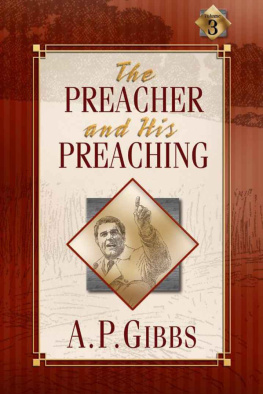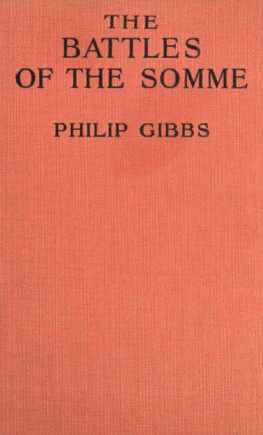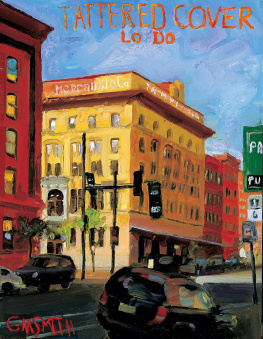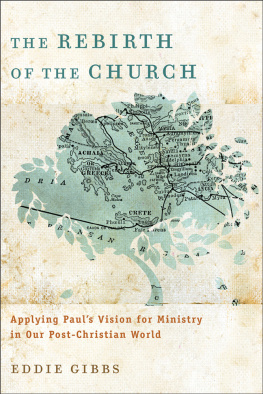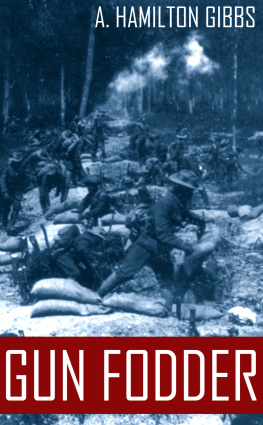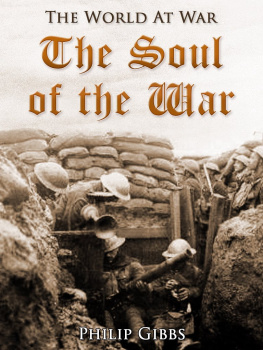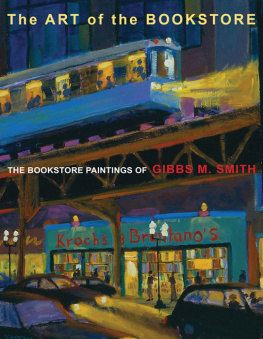Gibbs - Now it can be told
Here you can read online Gibbs - Now it can be told full text of the book (entire story) in english for free. Download pdf and epub, get meaning, cover and reviews about this ebook. City: Great Britain, year: 2015, publisher: Forgotten Books, genre: History. Description of the work, (preface) as well as reviews are available. Best literature library LitArk.com created for fans of good reading and offers a wide selection of genres:
Romance novel
Science fiction
Adventure
Detective
Science
History
Home and family
Prose
Art
Politics
Computer
Non-fiction
Religion
Business
Children
Humor
Choose a favorite category and find really read worthwhile books. Enjoy immersion in the world of imagination, feel the emotions of the characters or learn something new for yourself, make an fascinating discovery.
Now it can be told: summary, description and annotation
We offer to read an annotation, description, summary or preface (depends on what the author of the book "Now it can be told" wrote himself). If you haven't found the necessary information about the book — write in the comments, we will try to find it.
Gibbs: author's other books
Who wrote Now it can be told? Find out the surname, the name of the author of the book and a list of all author's works by series.
Now it can be told — read online for free the complete book (whole text) full work
Below is the text of the book, divided by pages. System saving the place of the last page read, allows you to conveniently read the book "Now it can be told" online for free, without having to search again every time where you left off. Put a bookmark, and you can go to the page where you finished reading at any time.
Font size:
Interval:
Bookmark:
CONTENTS
In this book I have written about some aspects of the war which, I believe, the world must know and remember, not only as a memorial of men's courage in tragic years, but as a warning of what will happen againsurelyif a heritage of evil and of folly is not cut out of the hearts of peoples. Here it is the reality of modern warfare not only as it appears to British soldiers, of whom I can tell, but to soldiers on all the fronts where conditions were the same.
What I have written here does not cancel, nor alter, nor deny anything in my daily narratives of events on the western front as they are now published in book form. They stand, I may claim sincerely and humbly, as a truthful, accurate, and tragic record of the battles in France and Belgium during the years of war, broadly pictured out as far as I could see and know. My duty, then, was that of a chronicler, not arguing why things should have happened so nor giving reasons why they should not happen so, but describing faithfully many of the things I saw, and narrating the facts as I found them, as far as the censorship would allow. After early, hostile days it allowed nearly all but criticism, protest, and of the figures of loss.
The purpose of this book is to get deeper into the truth of this war and of all warnot by a more detailed narrative of events, but rather as the truth was revealed to the minds of men, in many aspects, out of their experience; and by a plain statement of realities, however painful, to add something to the world's knowledge out of which men of goodwill may try to shape some new system of relationship between one people and another, some new code of international morality, preventing or at least postponing another massacre of youth like that five years' sacrifice of boys of which I was a witness.
When Germany threw down her challenge to Russia and France, and England knew that her Imperial power would be one of the prizes of German victory (the common people did not think this, at first, but saw only the outrage to Belgium, a brutal attack on civilization, and a glorious adventure), some newspaper correspondents were sent out from London to report the proceedings, and I was one of them.
We went in civilian clothes without military passportsthe War Office was not giving anywith bags of money which might be necessary for the hire of motor-cars, hotel life, and the bribery of doorkeepers in the antechambers of war, as some of us had gone to the Balkan War, and others. The Old Guard of war correspondents besieged the War Office for official recognition and were insulted day after day by junior staff-officers who knew that "K" hated these men and thought the press ought to be throttled in time of war; or they were beguiled into false hopes by officials who hoped to go in charge of them and were told to buy horses and sleeping-bags and be ready to start at a moment's notice for the front.
The moment's notice was postponed for months....
The younger ones did not wait for it. They took their chance of "seeing something," without authority, and made wild, desperate efforts to break through the barrier that had been put up against them by French and British staffs in the zone of war. Many of them were arrested, put into prison, let out, caught again in forbidden places, rearrested, and expelled from France. That was after fantastic adventures in which they saw what war meant in civilized countries where vast populations were made fugitives of fear, where millions of women and children and old people became wanderers along the roads in a tide of human misery, with the red flame of war behind them and following them, and where the first battalions of youth, so gay in their approach to war, so confident of victory, so careless of the dangers (which they did not know), came back maimed and mangled and blinded and wrecked, in the backwash of retreat, which presently became a spate through Belgium and the north of France, swamping over many cities and thousands of villages and many fields. Those young writing-men who had set out in a spirit of adventure went back to Fleet Street with a queer look in their eyes, unable to write the things they had seen, unable to tell them to people who had not seen and could not understand. Because there was no code of words which would convey the picture of that wild agony of peoples, that smashing of all civilized laws, to men and women who still thought of war in terms of heroic pageantry.
"Had a good time?" asked a colleague along the corridor, hardly waiting for an answer.
"A good time!"... God!... Did people think it was amusing to be an onlooker of world-tragedy?... One of them remembered a lady of France with a small boy who had fled from Charleville, which was in flames and smoke. She was weak with hunger, with dirty and bedraggled skirts on her flight, and she had heard that her husband was in the battle that was now being fought round their own town. She was bravepointed out the line of the German advance on the mapand it was in a troop-train crowded with French soldiersand then burst into wild weeping, clasping the hand of an English writing-man so that her nails dug into his flesh. I remember her still.
"Courage, maman! Courage, p'tite maman!" said the boy of eight.
Through Amiens at night had come a French army in retreat. There were dead and wounded on their wagons. Cuirassiers stumbled as they led their tired horses. Crowds of people with white faces, like ghosts in the darkness, stared at their men retreating like this through their city, and knew that the enemy was close behind.
"Nous sommes perdus!" whispered a woman, and gave a wailing cry.
People were fighting their way into railway trucks at every station for hundreds of miles across northern France. Women were beseeching a place for the sake of their babes. There was no food for them on journeys of nineteen hours or more; they fainted with heat and hunger. An old woman died, and her corpse blocked up the lavatory. At night they slept on the pavements in cities invaded by fugitives.
At Furnes in Belgium, and at Dunkirk on the coast of France, there were columns of ambulances bringing in an endless tide of wounded. They were laid out stretcher by stretcher in station-yards, five hundred at a time. Some of their faces were masks of clotted blood. Some of their bodies were horribly torn. They breathed with a hard snuffle. A foul smell came from them.
At Chartres they were swilling over the station hall with disinfecting fluid after getting through with one day's wounded. The French doctor in charge had received a telegram from the director of medical services: "Make ready for forty thousand wounded." It was during the first battle of the Marne.
"It is impossible!" said the French doctor....
Four hundred thousand people were in flight from Antwerp, into which big shells were falling, as English correspondents flattened themselves against the walls and said, "God in heaven!" Two hundred and fifty thousand people coming across the Scheldt in rowing-boats, sailing-craft, rafts, invaded one village in Holland. They had no food. Children were mad with fright. Young mothers had no milk in their breasts. It was cold at night and there were only a few canal-boats and fishermen's cottages, and in them were crowds of fugitives. The odor of human filth exuded from them, as I smell it now, and sicken in remembrance....
Then Dixmude was in flames, and Pervyse, and many other towns from the Belgian coast to Switzerland. In Dixmude young boys of Francefusiliers marinslay dead about the Grande Place. In the Town Hall, falling to bits under shellfire, a colonel stood dazed and waiting for death amid the dead bodies of his menone so young, so handsome, lying there on his back, with a waxen face, staring steadily at the sky through the broken roof....
Font size:
Interval:
Bookmark:
Similar books «Now it can be told»
Look at similar books to Now it can be told. We have selected literature similar in name and meaning in the hope of providing readers with more options to find new, interesting, not yet read works.
Discussion, reviews of the book Now it can be told and just readers' own opinions. Leave your comments, write what you think about the work, its meaning or the main characters. Specify what exactly you liked and what you didn't like, and why you think so.


